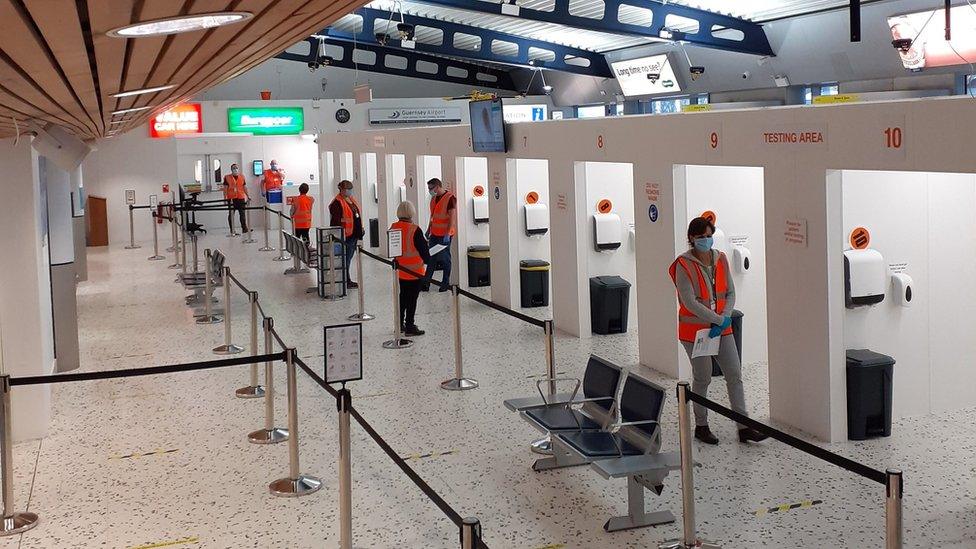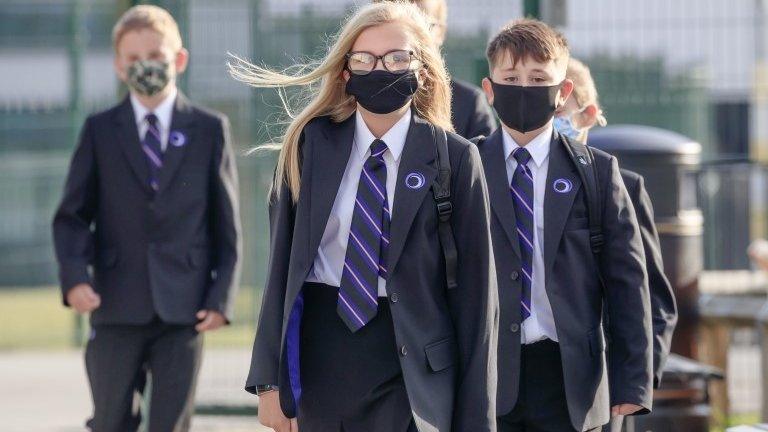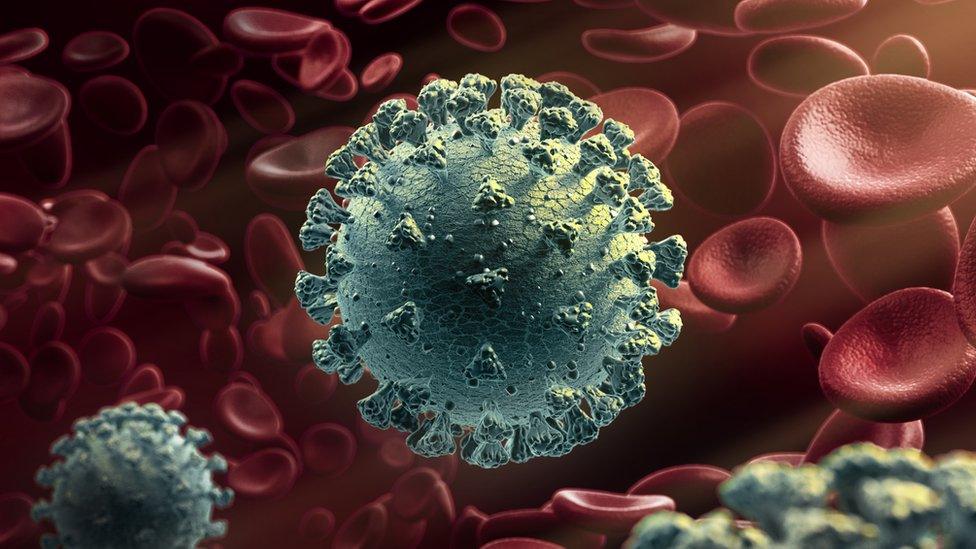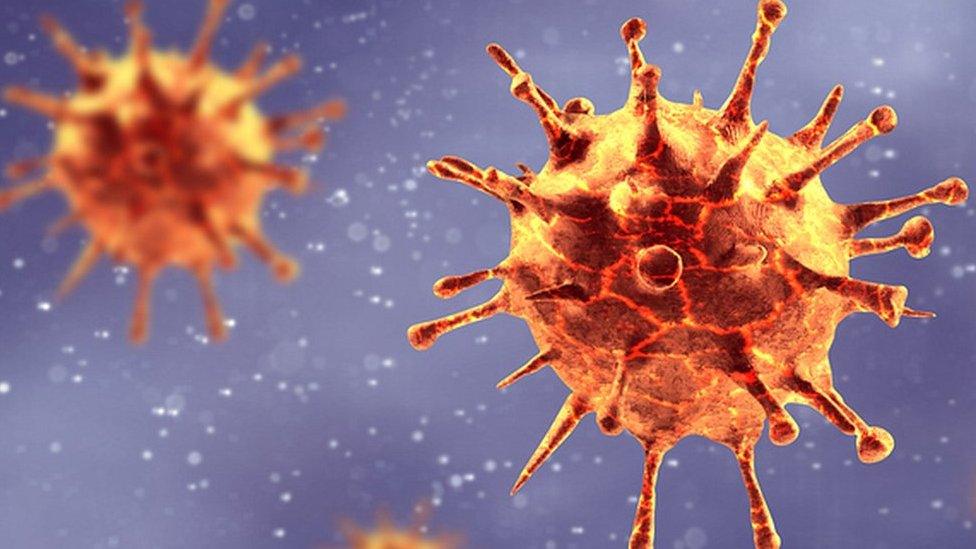Covid-19: Arrivals in Guernsey to take day 13 test to leave self-isolation
- Published

Guernsey has border testing for coronavirus at both the airport and port
Arrivals in Guernsey from areas with high prevalence rates of Covid-19 will have to test negative before leaving the mandated two-week self-isolation.
Anyone who decides not to take a test must self-isolate for three weeks instead, the States of Guernsey said.
The requirements apply to category four areas, external - those with infections above 100 per 100,000 of population - which includes the UK, France and Jersey.
Previously no testing was required to leave isolation after 14 days.
The new restrictions will also apply to those in self-isolation who arrived from 9 December, as they have not yet reached day 13 of isolation.
The States advised people who arrived on 8 December and who did not choose get tested on day 13 to take one.
The only region of the UK which is not currently in category four is the Scottish islands, but those who travel through worse affected regions to arrive in Guernsey must abide by the stricter requirements.
Children under 12, who are normally exempt from testing, will have to be tested at day 13 if want to to attend a school, pre-school, childcare or nursery.
It will also apply to anyone who chooses to self-isolate with someone arriving in the bailiwick, the States confirmed.
Anyone breaking the rules can face a fine of up to £10,000 or a prison sentence.
'Requires stricter measures'
These stricter measures were introduced by the Civil Contingences Authority in response to the discovery of a new strain of the virus in England, which appears to be more transmissible.
Chairman of the Civil Contingencies Authority Peter Ferbrache said the border restrictions in place had been "extremely effective" at allowing the States to "stay in control" of Covid-19 and avoid on-island restrictions.
He said: "But we must continue to be vigilant to any change in the nature of the threat posed by the coronavirus.
"This new strain appears to be significant change and one that requires stricter measures to ensure we are detecting and managing any cases that arrive through travel into the bailiwick."

GLOBAL SPREAD: How many worldwide cases are there?
THE R NUMBER: What it means and why it matters
EPIDEMIC v PANDEMIC: What's the difference?

Related topics
- Published22 December 2020

- Published20 December 2020

- Published15 December 2020
